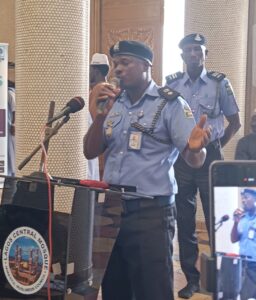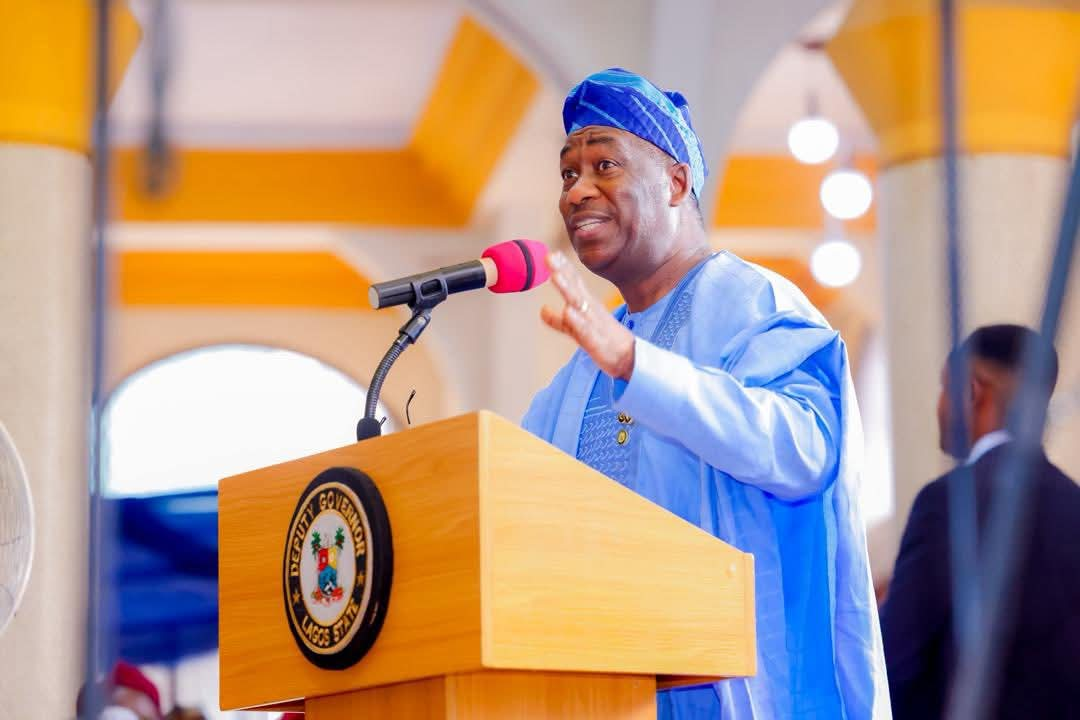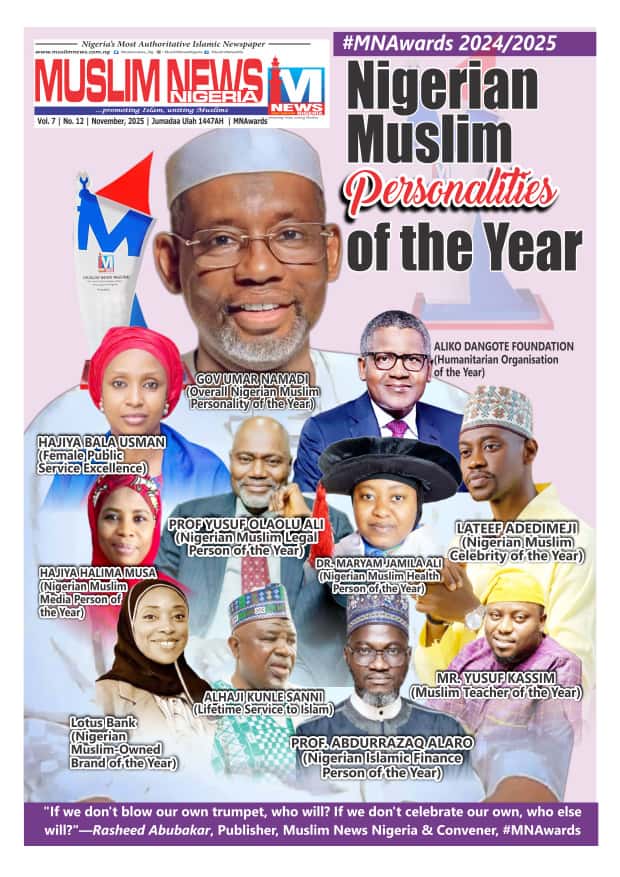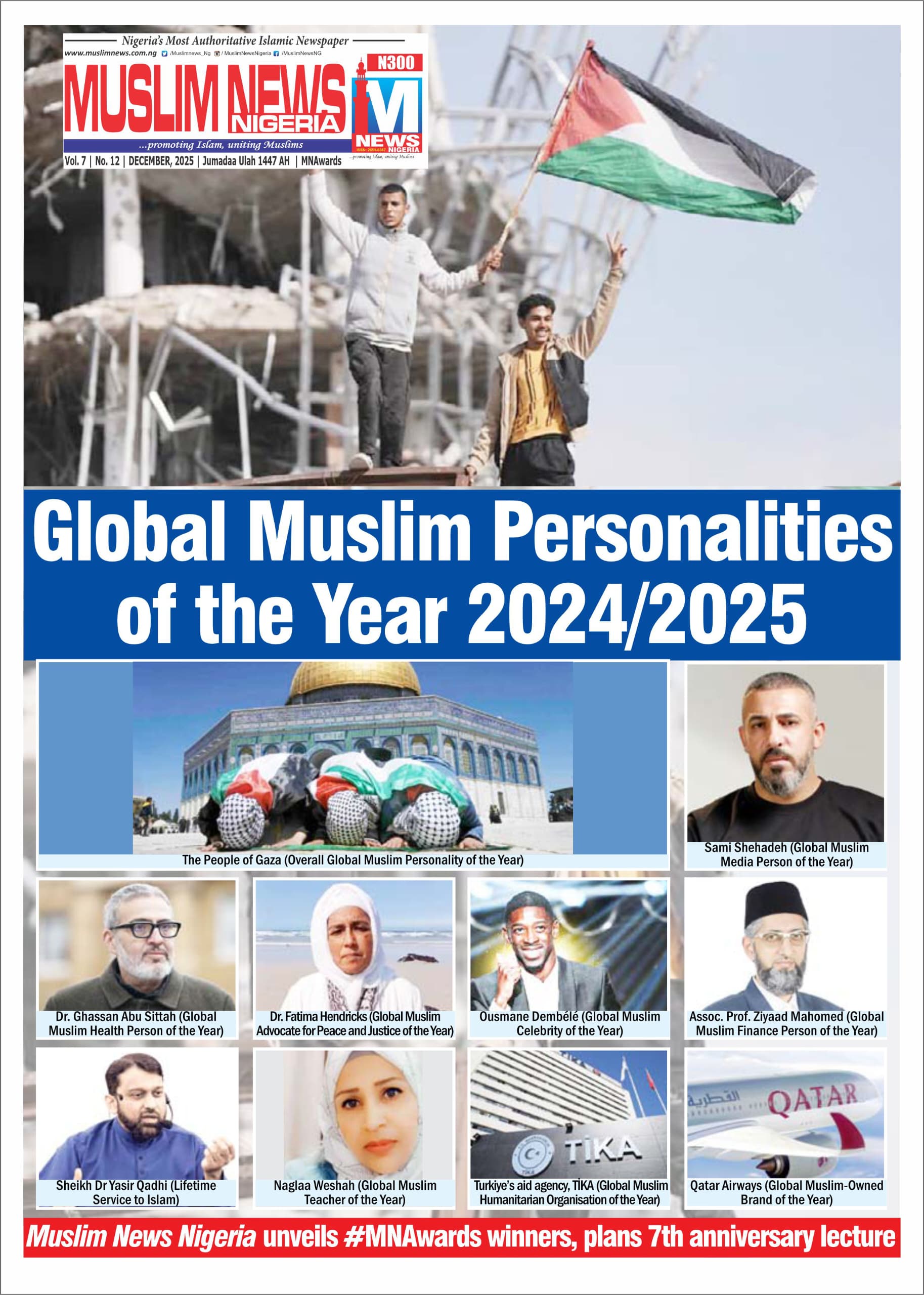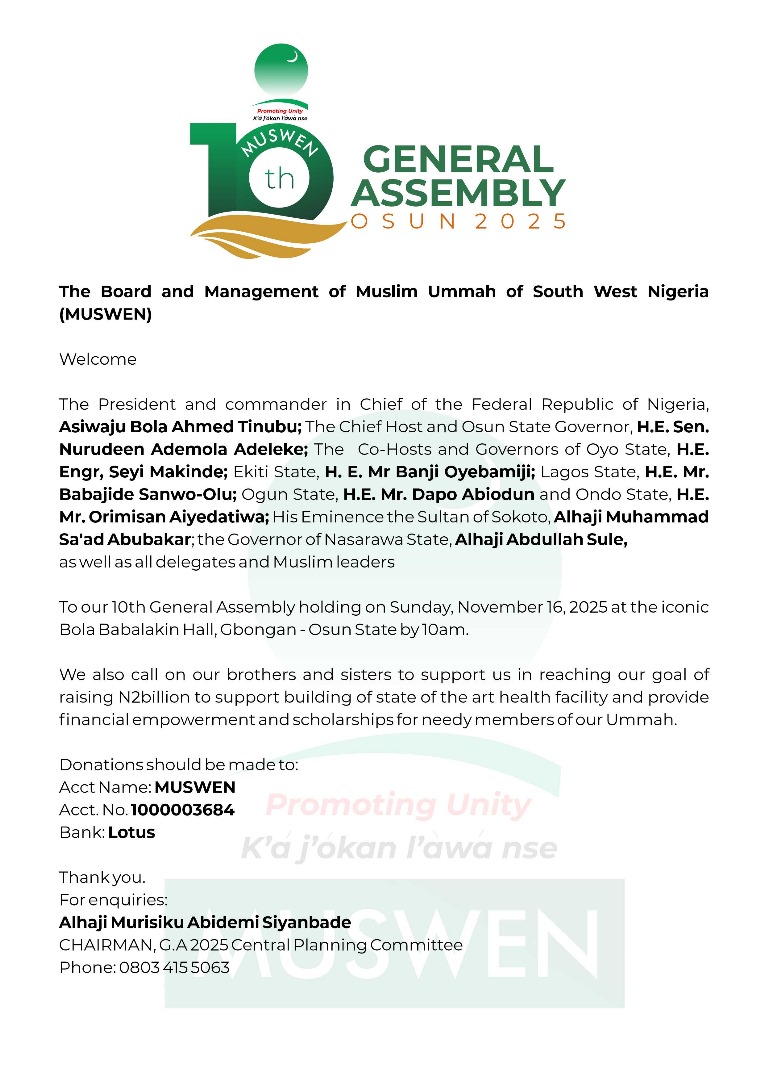The Governor of Lagos State, Mr. Babajide Olusola Sanwo-Olu, has stressed the need for deeper collaboration between government and religious leaders, describing clerics such as Alfas, Imams, Pastors, and Ulama as critical voices in fostering societal stability and civic understanding.
Speaking through his deputy, Dr. Kadri Obafemi Hamzat, at the Imams Capacity Building Workshop in Lagos, Governor Sanwo-Olu stated that sermons carry significant influence and that religious leaders play a vital role in helping the public better understand government policies and intentions.
The workshop was organised by the Council of Imams and Ulamas, under the leadership of the Grand Chief Imam of Lagos, Sheikh Engr. Sulaimon Oluwatoyin Abu-Nola, in collaboration with the Ibile Muslim Community and Zakat and Sadaqat Foundation.
Held at the Lagos Central Mosque on Thursday, with the theme, “Enhancing the Partnership of Spiritual Leaders and Government in Nation Building”, the programme attracted dignitaries including Hon. Dr. Jebe Abdullahi Ahmad, Special Adviser to the Governor of Islamic Affairs; Hon. Ibrahim Layode, the Commissioner for Home Affairs; Sheikh Abdurrahman Ahmad, National Missioner of Ansar-Ud-Deen Society of Nigeria; Prof. Saheed Timehin from Lagos State University, LASU, among others.
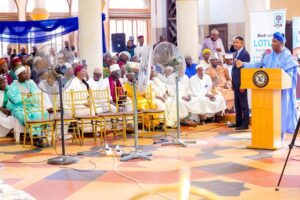
Gov Sanwo-Olu noted that structured engagement with religious leaders would help counter misinformation, improve civic awareness, and enhance the success of government development efforts.
The Governor also emphasized the importance of preserving moral values among youth and called for stronger support for interfaith platforms like the Nigerian Inter-Religious Council (NIREC) to promote peaceful coexistence.
Sheikh Ahmad seeks stronger government engagement with religious leaders
Sheikh Ahmad called for a more robust and consistent partnership between religious leaders and the government, emphasising the need for mutual respect and proactive engagement in policy-making.
The respected and eloquent Muslim scholar however stated that while religious leaders are essential partners in nation-building, they are often sidelined until crises arise.
According to him, “Religious leaders partner with the government in progress at all times. Hence, there must be strong reach and effective communication between the two parties to ensure optimum results. However, there are imbalances that need to be addressed for the good of all, and that’s all we’ve come here to address.
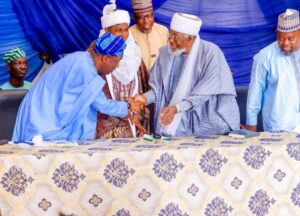
He noted that although the relationship between religious leaders and government remains cordial, it is no longer as effective or impactful as it once was. Read the full story HERE
Dr. Sanda sensitises Imams on dangers of silent killer diseases
One of the highlights of the workshop was a health talk delivered by medical expert Dr. Umar Sanda, who raised critical awareness about the dangers of “silent killers”—diseases that progress quietly without noticeable symptoms until significant damage has occurred.
Speaking on the topic “Silent Killers — Awareness, Prevention, and Control”, Dr. Sanda explained that these conditions are responsible for many sudden deaths often described with the phrase, “he was fine yesterday, and gone today.”
He mentioned several examples of such conditions, including high blood pressure, diabetes, certain cancers, kidney disease, hepatitis B and C, heart disease, and glaucoma, saying that they often show little to no early symptoms, making them especially dangerous.
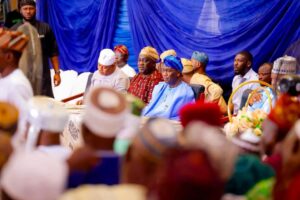
Dr. Sanda identified major risk factors, including poor diet, sedentary lifestyle, stress, smoking, and skipping medical checkups.
He urged Nigerians to be proactive about their health by maintaining a healthy lifestyle, staying alert to subtle warning signs like fatigue, blurred vision, or sudden weight changes, and prioritizing regular screenings.
He also underlined that prevention is cheaper and more effective than cure, encouraging both individual responsibility and community involvement in promoting healthier living.
Rise to your responsibility: Chief Imam
The Grand Chief Imam of Lagos, Sheikh Sulaimon Abou-Nolla, who hosted and convened the event, emphasized that Islam is a religion of peace, service to humanity, and providing solutions to societal challenges.
He urged Imams to rise to their responsibilities, noting that the current state of the nation demands proactive leadership from religious figures.
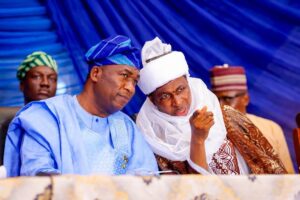
Sheikh Abou-Nolla also noted that a strong partnership between faith institutions and the government is essential for national progress, peace, and prosperity.
The Grand Chief Imam of Lagos, Sheikh Sulaiman Abou-Nolla, added that strong synergy between faith institutions and government remains a beacon of hope for national progress, peace, and prosperity.
LASU Professor seeks ethical disagreement among Muslim scholars
Professor Saheed Timehin of Lagos State University (LASU), who was also one of the guest speakers, called on Muslim scholars and their followers to uphold the Islamic ethics of disagreement, especially in the age of social media where unhealthy exchanges are becoming rampant.
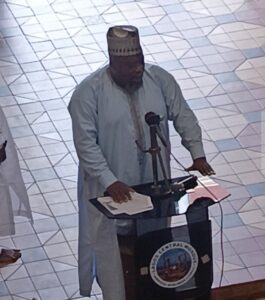
Prof. Timehin decried the growing trend of scholars attacking one another online, noting that debates often degenerate into personal insults rather than constructive discourse.
He said, “There is nothing wrong in disagreeing with someone’s opinion, but it must be done ethically. Disagreement should be based on truth, conducted with respect and decorum. Let it be clear that you’re addressing the issue, not attacking the individual.”
Police Imam decries poverty among Ulamah, links it to rising insecurity
CSP Raji Muhammad Jamiu who also serves as the Chief Imam of Zone 2 Police Command Lagos Nigeria raised concerns over the rising poverty levels among Muslim scholars, warning that the economic vulnerability of Imams is contributing to insecurity in communities.
CSP Muhammad Jamiu emphasized the urgent need to empower religious leaders economically so they can serve as effective bridges between the government and the grassroots.
According to him, “The mosque belongs to Allah, but it cannot feed the Imam. If an Imam has a sustainable source of income, even a small business he can support his family and contribute positively to society.”
